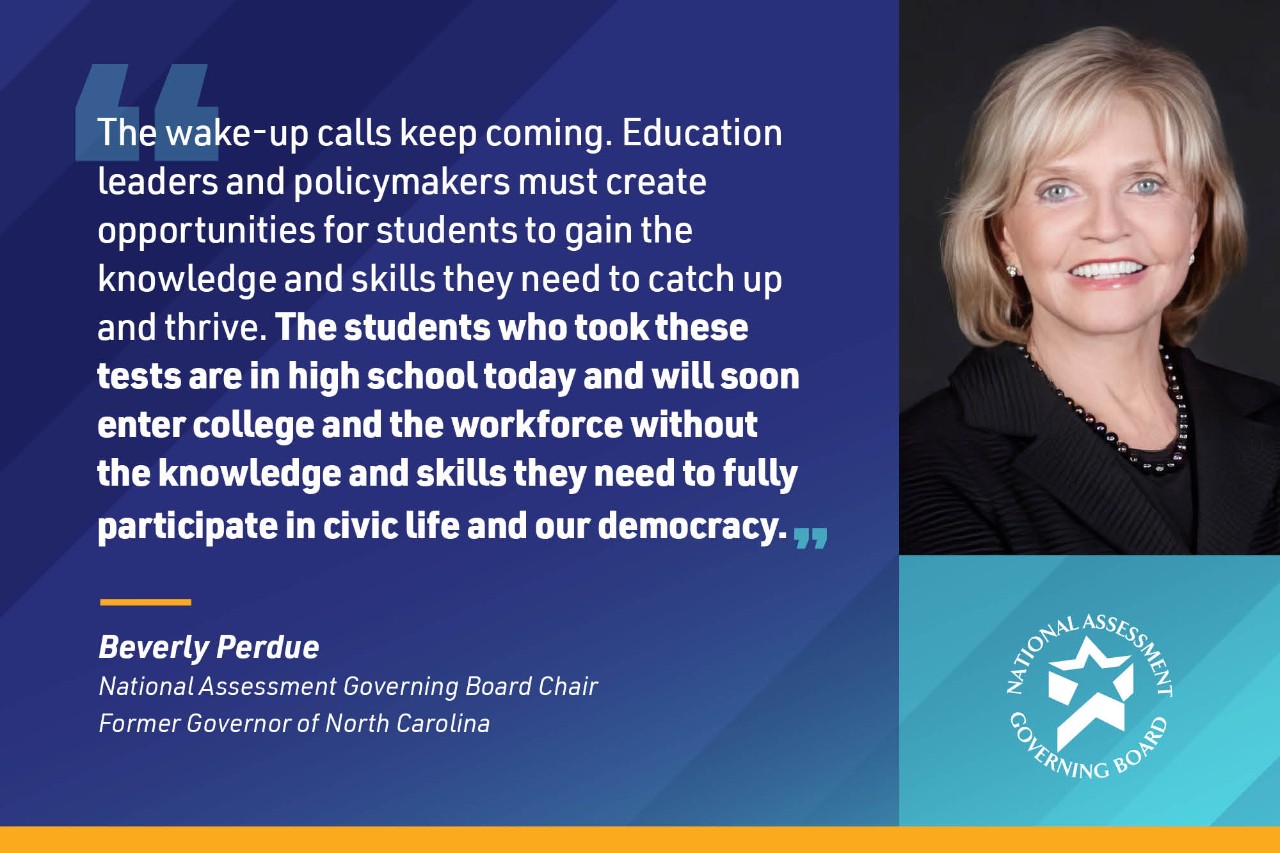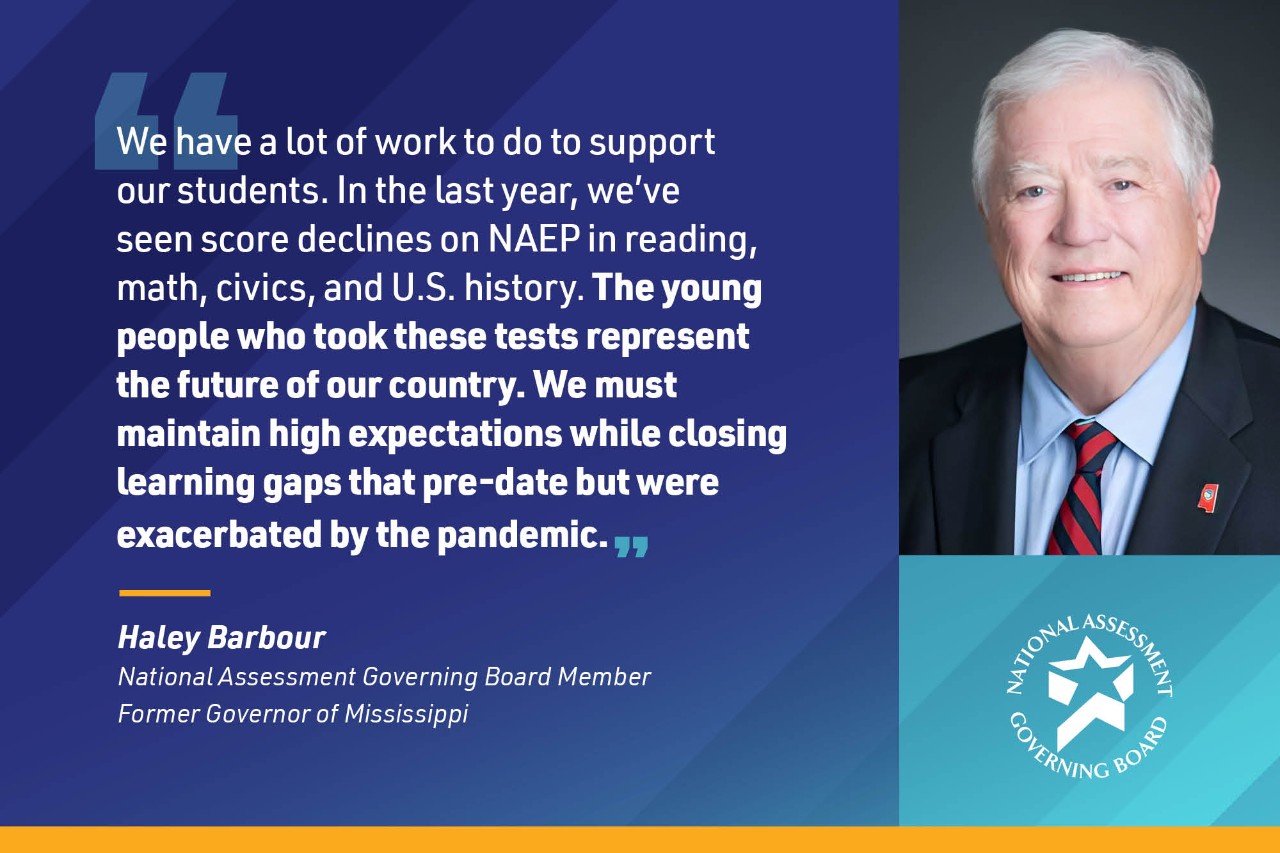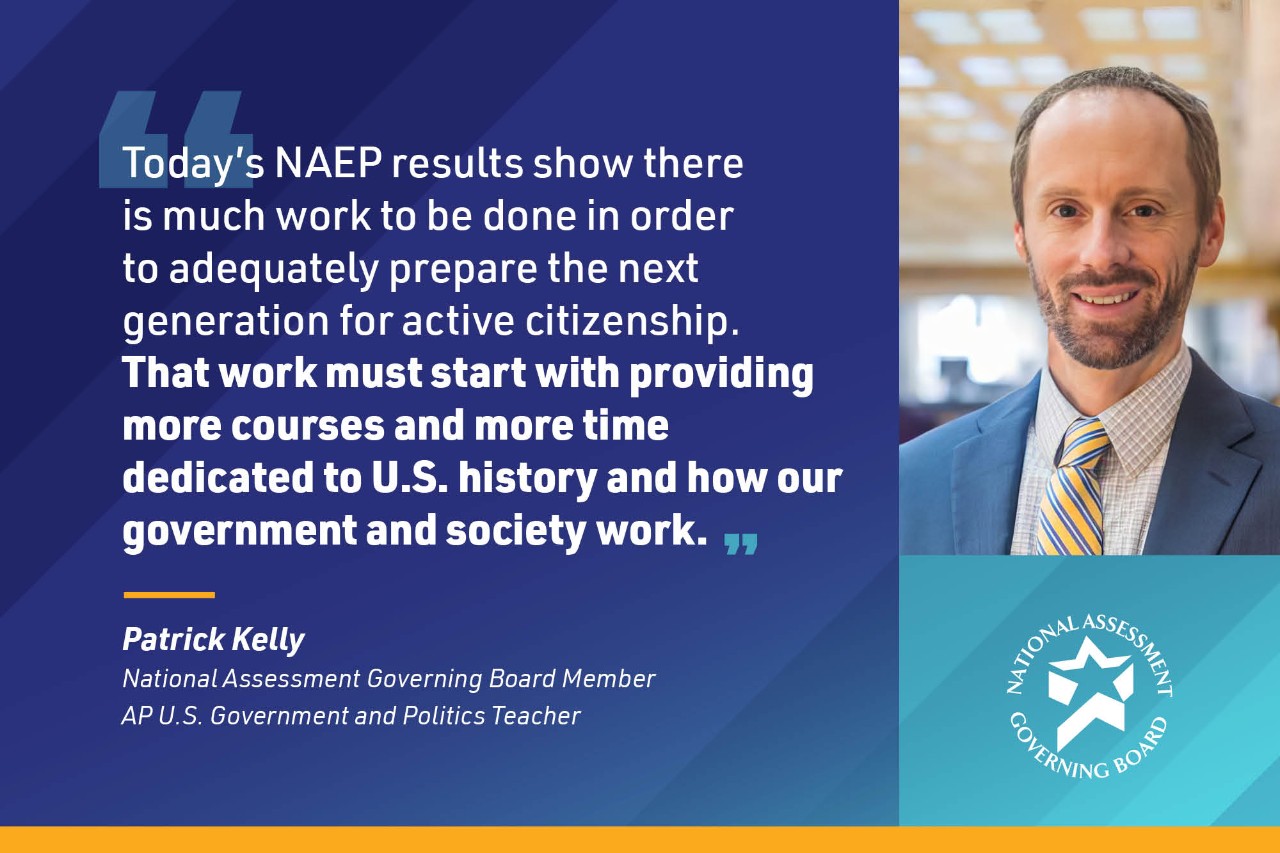
Trends and Research in U.S. History and Civics
In May 2023, the National Assessment Governing Board hosted the release of the 2022 Nation’s Report Card for U.S. History and Civics. Results included national results for eighth grade students, along with insights into students' learning experiences. View the live stream of the release event from the U.S. Capitol.
Understanding the Nation’s Report Card: Trends and Research in U.S. History and Civics
U.S. eighth graders saw average score declines in U.S. history and civics on the latest Nation's Report Card (also called the National Assessment of Educational Progress, or NAEP), another reminder that the nation urgently needs to turn its attention to learning at the secondary level.
U.S. History
- Average scores dropped 5 points on the NAEP U.S. history assessment between 2018 and 2022. The decrease continues a trend of declining scores that began in 2014.
- Just 13 percent of eighth-grade students scored at or above the NAEP Proficient level in U.S. history; 40 percent of students are below NAEP Basic.
Civics
- Average scores on the civics assessment declined by 2 points since students last took the test in 2018, the first decline since the assessment began in 1998.
- Only 22 percent of eighth-graders scored at or above the NAEP Proficient level in civics; 31 percent are below NAEP Basic.
The score gaps between the nation’s highest- and lowest-performing students increased in both subjects, a trend also seen in math and reading in fourth grade.
Trends and Research
As educators, policymakers, and families use the Nation’s Report Card to understand teaching and learning, the Governing Board is sharing insights about these results. Together, we can use these data to see where more support and resources are necessary and to learn where policies and practices appear to work.
What These Result Suggest
- Support middle and high school students. Across recent Nation’s Report Card assessments, eighth graders are performing at historic lows in reading, math, U.S. history, and civics, with fewer than one-third of students performing at or above NAEP Proficient in any subject. The students who took these assessments are now in high school.
- Understanding U.S. history and civics is critical to participating in society and living up to our ideals. At every grade level, schools have a core role to play in instruction around citizenship knowledge and skills. Yet, fewer students report taking courses mainly on U.S. history; and more students report low confidence in their civics knowledge and skills.
- We must focus on literacy and background knowledge. Demonstrating strong knowledge and skills in any subject requires background knowledge, which in turn promotes stronger literacy.
What Board members are saying
Related Reading
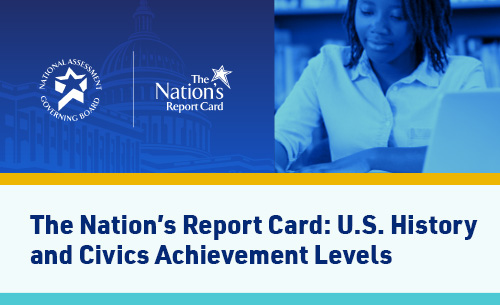
The Nation’s Report Card: U.S. History and Civics Achievement Levels
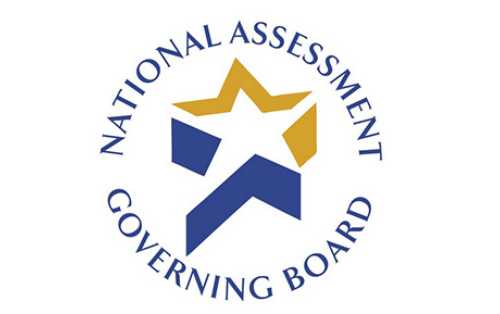
2022 NAEP U.S. History and Civics Results Press Release
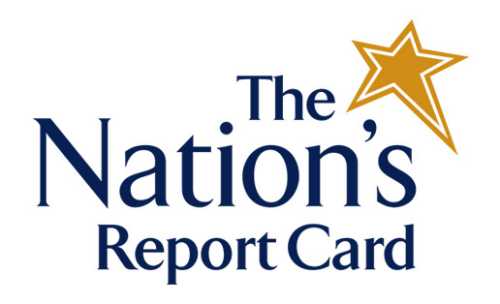
2022 NAEP U.S. History and Civics Results
